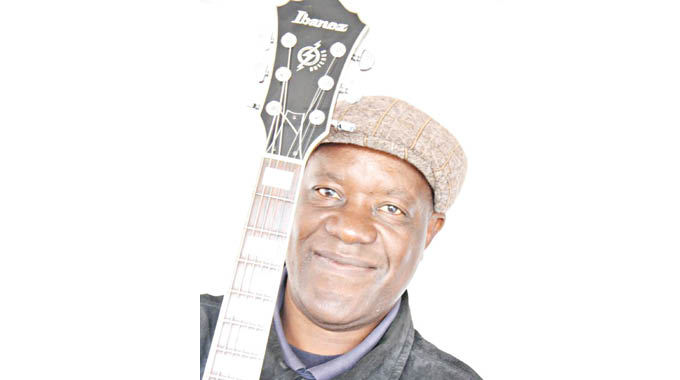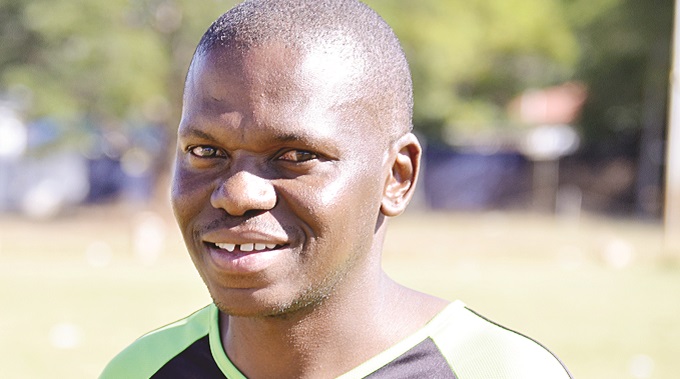Began my music journey 44 years today: Jazzman

Wayne Chiridza, Showbiz Reporter
In 1975, five years before Zimbabwe gained independence, jazzman Hudson Simbarashe decided to pick up a guitar and embark on a music journey.
The 58-year-old artiste who was raised in Sizinda, had fallen in love with music after sampling vinyl records which were bought by his sister.
“Back then, the music I used to listen to was Blues, Rock, Jazz and South African traditional music. So when my sister brought the vinyl records, I became curious about how they were made. It was from this curiosity that I also got a zeal to want to play music,” recounted Simbarashe.
In order to learn more about music, he joined a jazz club in Tshabalala suburb where people used to play instruments like trumpets and guitars.
“Most guitarists at that time used to play Hey Joe by Jimmy Hendrix. When I joined the guitar class, I also played that song. I don’t remember what I played but I think the guy heard a bit of Hey Joe and told me to join his class.”
After joining the class, Hudson who said he is inspired by African history, decided to teach himself how to play a guitar at home. Unfortunately, his father was not supportive.
“My father never wanted to hear me playing the guitar so I used to practice when he wasn’t around, either when he was at work or church. I remember, there was a time when I met Safirio Madzikatire and he wanted to go with me to play in Harare. I came back home happy, but when I told my parents, they refused to let me travel.”
This did not deter him as I drew inspiration from Jimi Hendrix, Safirio Madzikatire, Oliver Mtukudzi and Thomas Mapfumo among others.
After Independence, things started shaping up for Simbarashe as he started having shows in the city centre and places which had been restricted to black people. He teamed up with fellow young musicians to form Montana Ray, a group that played blues, jazz and rock. The band comprised of Simbarashe, George Phahlane, Davidson Chipembere and two other musicians he recalls only as Silver and Joseph.
“I wouldn’t say the group was successful because we weren’t getting paid, but I remember we would play in places like Bambi Lodge when I was just 15 and this sparked a lot of debate at home with my father. I had started as a vocalist, but I learnt to play the guitar with time so we started playing at Hlanganani Cocktail Bar in Tshabalala,” he said.
Simbarashe said he was not satisfied with what they were doing as Montana Ray and kept going to Hlanganani to listen to other musicians. This is when he found out that some people who went there craved an African sound. It was during this time that he met Leonard Dembo, a man who was also in search of his own identity in music. Together, they would try to find a sound that could blend Montana Ray’s staple of jazz, blues and rock with local languages.
“At the same venue, we discovered a guy called Legion and he played music that sounded like mbaqanga. We formed one group and later on, we were joined by Jonah Mutuma. He was from Mpopoma but he would come all the way to Sizinda.
“He took over the vocals because he was a rock singer so at the end, we had a full band made of many different genres. There was no pay as we did it out of passion.”
Eventually, Simbarashe’s father, who had been against his son’s chosen career path, was to get his way and he managed to pry his son away from the stage and onto the warehouses of Bulawayo’s then thriving industries. He subsequently retired, thereby making Simbarashe the family’s sole breadwinner. Although he had little love for work, he later spent 23 years as a locomotive driver at the National Railways of Zimbabwe.
In 2004, Simbarashe launched his debut album titled Now or Never followed by Forgotten Tears in 2008. The two albums earned him a seat among Bulawayo’s leading jazz artists.
He said back then, Jazz music was well appreciated and had a big impact on society.
“The music scene back then was vibrant. Every live show was spectacular as people would come together to interact while watching a live band perform.”
Now, Simbarashe who is mostly a session musician, said, it is difficult to play around the city because of the crowd that will be there as most of the popular places no longer have Jazz as the main segment.
“If someone calls you to come and play at a certain place, it’s now difficult to play for the crowd as things have changed. Every place has its own crowd and today, the majority does not listen to jazz. When you play for such a crowd, you can get negative feedback and this is a big setback to the genre and jazz artistes,” said the jazzman.
But his music seems to have had a huge impact on his children as three of them have joined the music industry. His daughter plays the drums and his sons play the piano and mbira.
“From when they were young, I always told my children not to do music but it seems they have all chosen to be in the music industry.”
Commenting on his journey, he said it has been interesting, challenging and sometimes disappointing but what has kept him going is his love of music.
“Music is a spirit. It’s not physical because when you pick up an instrument, you play something you don’t even know where it’s coming from. I’ve lost a lot of good friends but I’ve also met and made new ones through music.”
Simbarashe said the good thing about being a jazz artiste is that one plays around with various instruments. — @waynecas.











Comments